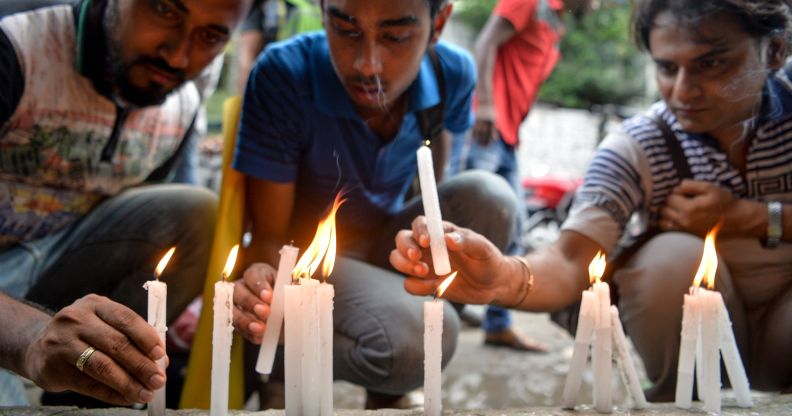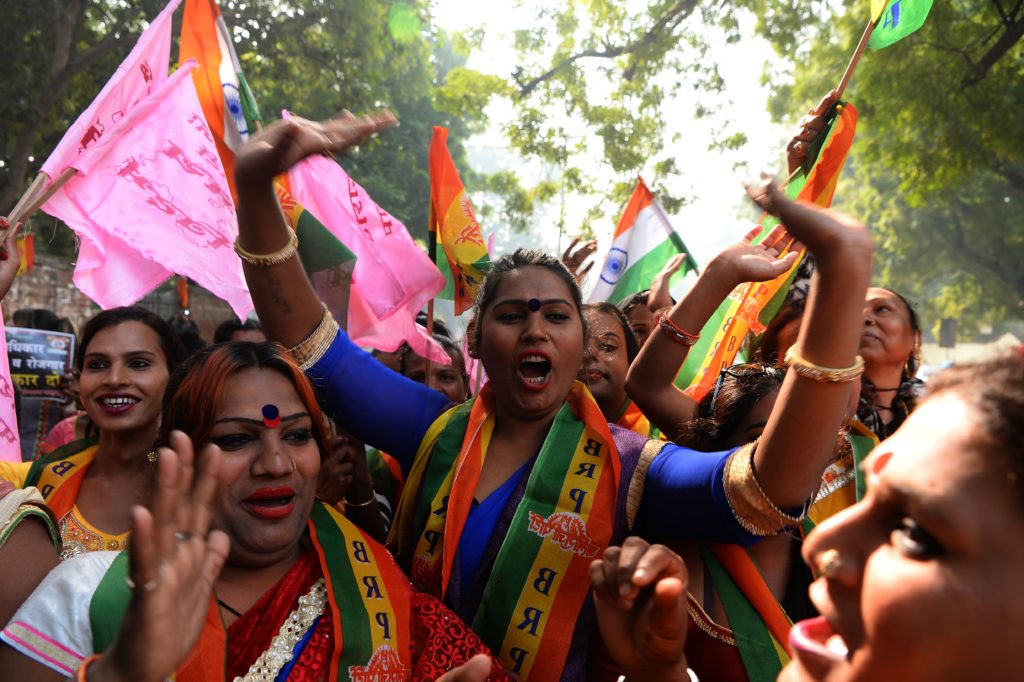Transgender people will not be criminalised for begging in India

Indian activists protest the murder of trans person Raja Das (Barsha) on June 6 in Siliguri. (DIPTENDU DUTTA/AFP/Getty Images)
Controversial provisions in an Indian law that criminalised begging by transgender people and forced them to register as trans have been struck out.
The begging provision had been heavily criticised by India’s trans community, who said that begging remains their primary source of income and to introduce a law criminalising it without providing them with alternative options would take away their means of living.
Begging was made a criminal offence in India’s capital, Mumbai, in 1959, with the legislation extending to Delhi the following year.
In August 2018, the Delhi High Court decriminalised begging, saying that it was the wrong approach to dealing with the problem.
“The State simply cannot fail to do its duty to provide a decent life to its citizens and add insult to injury by arresting, detaining and, if necessary, imprisoning persons who beg in search for essentials of bare survival,” said Justice Gita Mittal and Justice C. Hari Shankar at the time.

Members of the Indian transgender community take part in a protest against the Transgender Persons Bill 2016, in New Delhi. (SAJJAD HUSSAIN/AFP/Getty Images)
Transgender persons bill introduces rights and protections
But the new Transgender Persons (Protection of Rights) Bill 2019, which was cleared by India’s union cabinet on July 10, originally contained a provision stating that, “Whoever compels or entices a transgender person to indulge in the act of begging or other similar forms of forced or bonded labour other than any compulsory service for public purposes imposed by government.
The word “begging” has been removed, said a senior official from the social justice and empowerment ministry, according to the India Times.
And another provision of the bill, which meant that trans people would have been forced to subject themselves to screening by a committee and certified as trans in order to qualify for the anti-discrimination protections in the bill, has also been struck out.
The new trans bill defines trans identities and gives the community rights and discrimination protections. It will be introduced in the next session of the Indian Parliament.

